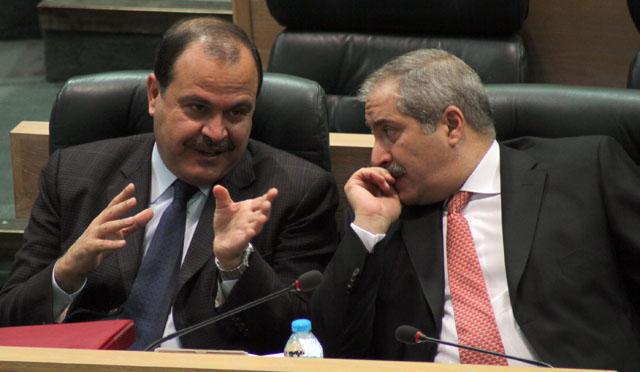AMMAN — Lower House Speaker Atef Tarawneh on Tuesday conveyed a verbal message from His Majesty King Abdullah to Iran’s President Hassan Rouhani.
On behalf of the King, Tarawneh expressed “best wishes for the continued progress and prosperity of Iran”, the Jordan News Agency, Petra, reported.
The agency quoted Rouhani as commending “the brotherly relations between the countries”, adding that Iran is “determined to developing bilateral ties with Jordan and improve economic and cultural relations between the two countries”.
He acknowledged that regional conflicts in Palestine, Iraq and Syria have had an adverse impact on Jordan, and thus, regional stability is very important to bring an end to the problems facing the Kingdom in this regard.
Noting that the issue of “terrorism” in Syria should be dealt with as one of the region’s priorities, he claimed that the phenomenon is the reason behind blocking the delivery of logistics and humanitarian assistance to Syrians in conflict zones.
The Iranian president noted that what concerns everybody now is to end the bloodshed of Muslims there, adding that the future of Syria should be determined by its people and “we should accept what the Syrian people decide regarding what to do to create an appropriate climate for elections”.
This calls for paving the ground for that and for a “Syrian-Syrian” dialogue, calling on the countries of the region to assist Syria to move towards that goal.
Stressing the strong Jordanian-Iranian relations, the Parliament speaker said, in Jordan “we respect the role of Iran and we hope that such a role will contribute to solving the crisis in Syria”.
He stressed Jordan called for a peaceful solution since the beginning of the crisis and it has rejected the internal fighting between the Syrians, adding that disputes should be resolved “through dialogue rather than war”.
The speaker said Jordan has had to deal with the repercussions of the Syrian crisis as it hosts more than 1.25 million Syrians, including 600,000 registered refugees while the “terrorist groups” in Syria are no more than 20km away from the Jordanian border.
Tarawneh stressed Jordan is continuing an open-border policy to help the Syrians and is keeping a cautious eye on the border to prevent the entry of weapons and terrorist groups into the Kingdom.
Tarawneh, chairing a Jordanian parliamentary delegation, participated in the 9th summit meeting of the Islamic Inter-Parliamentary Union, which was inaugurated by the Iranian president.














